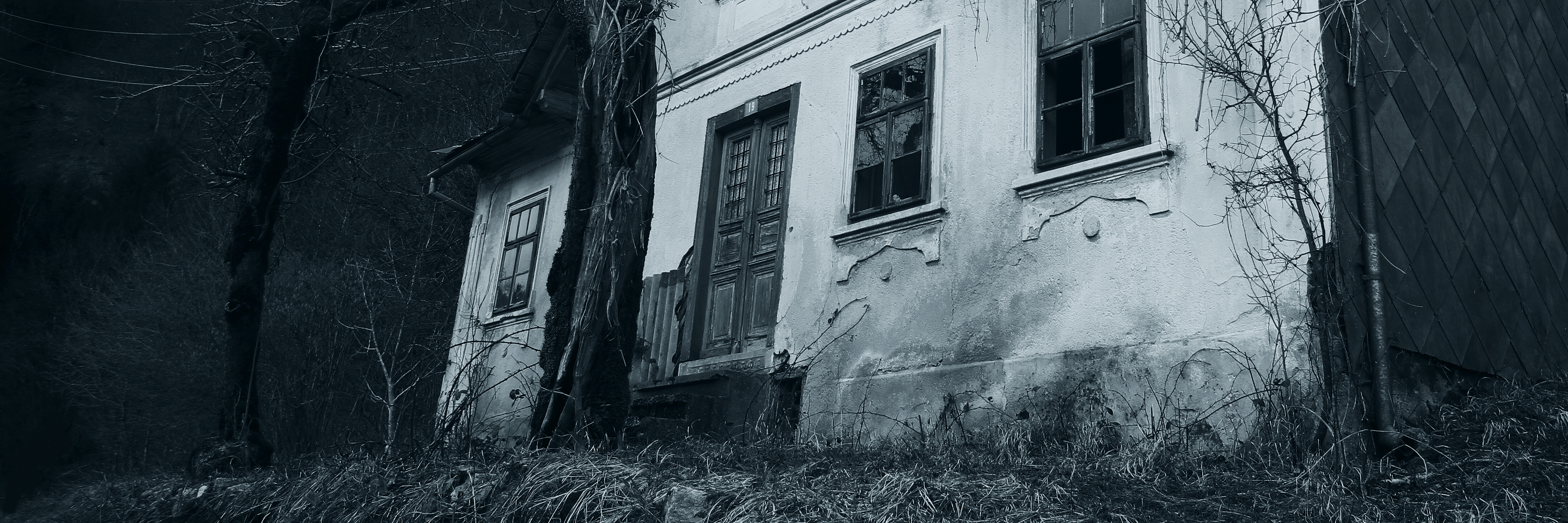Coming out of a depressive period is a lot like the end of a horror film. You emerge from the dilapidated house, home to the reclusive stranger, having narrowly escaped your own demise. You’re dirty, with your hair amiss and you are covered with emotional and often physical scars. Yet you take step after step, blinking in the new light outside, amazed you survived the night.
You entered the house unknowing what you were getting into. Perhaps the house was inherited, maybe you are lured into it, or dared by a friend to “try” and enter the house. Maybe it is the only option on the street, the only property in your price range. There are many ways to enter a depressive period — it could be genetic, caused by trauma or the result of addiction or illness. Either way, it’s clear you would never have entered the house of depression had you known what it would contain.
Inside the house, each room is a life event — a new job, puberty, medication, addiction, homelessness and relationships. Cobwebs cover childhood memories and the locked cellar contains all the personal and familial memories you’ve locked away, waiting to be discovered. Within each room is the potential for the villain to lurk in a corner, and you stumble from room to room almost waiting for it to jump out, or for booby traps to ensnare you in depression and anxiety.
But anyone who has watched these films knows that you never enter the house alone. There is always a group of people with you, ready to be killed off at various stages. These are your relationships and friendships. Your career and hobbies. The first to leave doesn’t seem like such a loss — the superficial friends and extra activities you don’t really like. The people who are only there for the good times, the party friends who are always up for a drink but never around when the going gets tough. They’ll bait the villain, almost daring it out of the shadows, and thus they are the first to leave your life. They underestimated that depression even existed and that it could touch them. You don’t really miss them much.
Next to leave is a close friend or a hobby you enjoy. You will miss this one — you’ll feel their absence long after they go. Perhaps they felt like they could handle the house. They followed you in but eventually, the house beat them and killed that relationship, that hobby too. They didn’t know what they were getting into, and while they tried to keep up, your depression was too black and too horrific for them.
There is always a false escape before the end. The protagonist somehow finds an exit — usually through the locked cellar, and stumbles into the street before true sunrise. A few steps onto the street, they are picked up by a cop who offers to take them home but is actually the villian’s brother — a related mental illness, a treatment that’s not right for you or a relationship that turns sour. They take them back to the house and now there are two creeps to deal with. Or the villain emerges out of a trap door only to drag you back by your hair into the house of depression. A taste of freedom before depression sneers, “You didn’t think it was that easy, did you?”
This is usually when you lose the person or thing you value the most. Your relationship, your closest friend or your career. This death hits you the hardest; you had almost escaped without sacrificing them. But we all know things always get worse before they get better, and before you know it you are trying to breathe life into that last vestige of the outside world. You cradle them in your arms, sobbing, not knowing how you will go on from here without them.
You want to lie down beside them and give up, accept your fate and stop fighting.
But with your last ounce of strength, you drag yourself away, picking up a weapon of sorts — therapy, medication, exercise, not sure if you can even wield it properly. You swing it at depression, knocking it out for a second and stumble out the door.
The light is too bright, your whole body aches and you expect to be dragged back again with each step, but you know the only way out is to keep moving. Of course, after escaping, you must deal with the aftermath. Finding a life for yourself in this new world devoid of the innocence it once held for you. People ask questions about your experience, not knowing what really happened or why you reacted the way you did.
“Why did you enter the house in the first place?”
“You should never enter the locked cellar, those things are best left locked. You know what it’s hiding is no good.”
“Whatever happened to that friend of yours?”
You mourn everything you lost when you entered the house. Your previous life and the friendships you had. You feel guilt and shame about what happened in the house, question the choices you made at the time and replay the events over and over, praying for a different outcome. You try to piece back your life, and function in the world around you. Sights and smells constantly remind you of the experience however, and you never forget that depression is still out there, searching for you, waiting for the sequel to begin.
We want to hear your story. Become a Mighty contributor here.
Thinkstock photo via ltus

